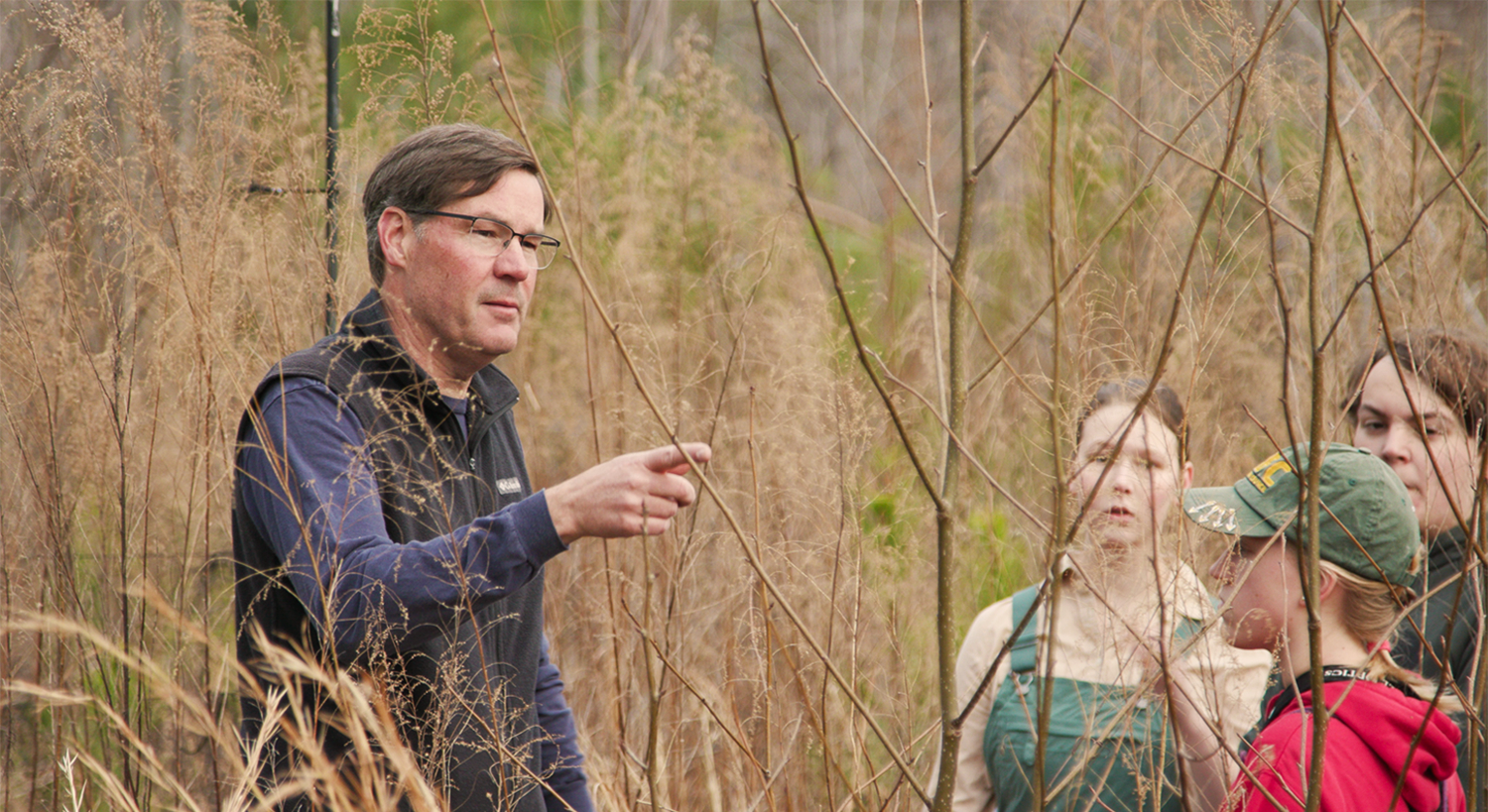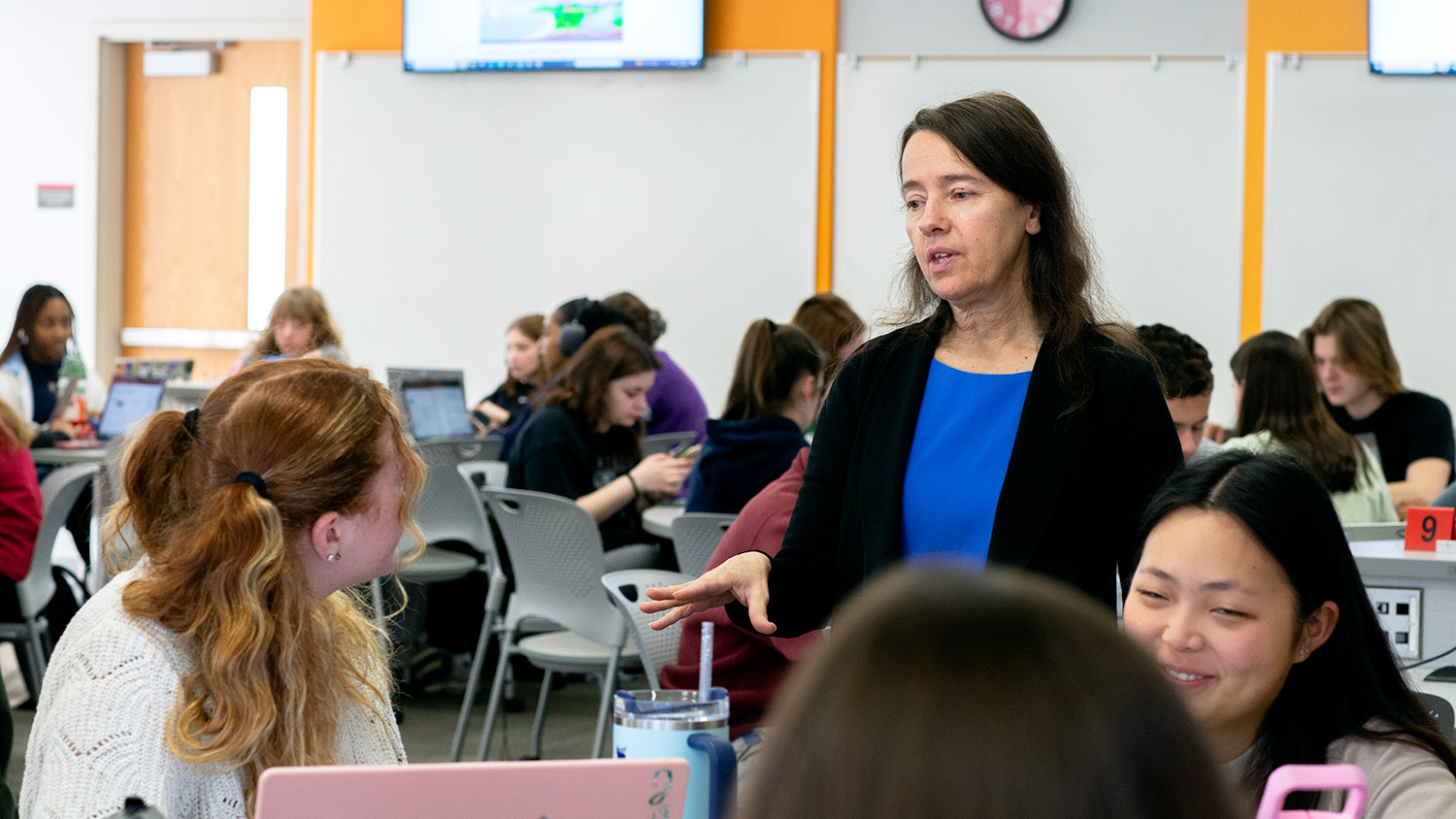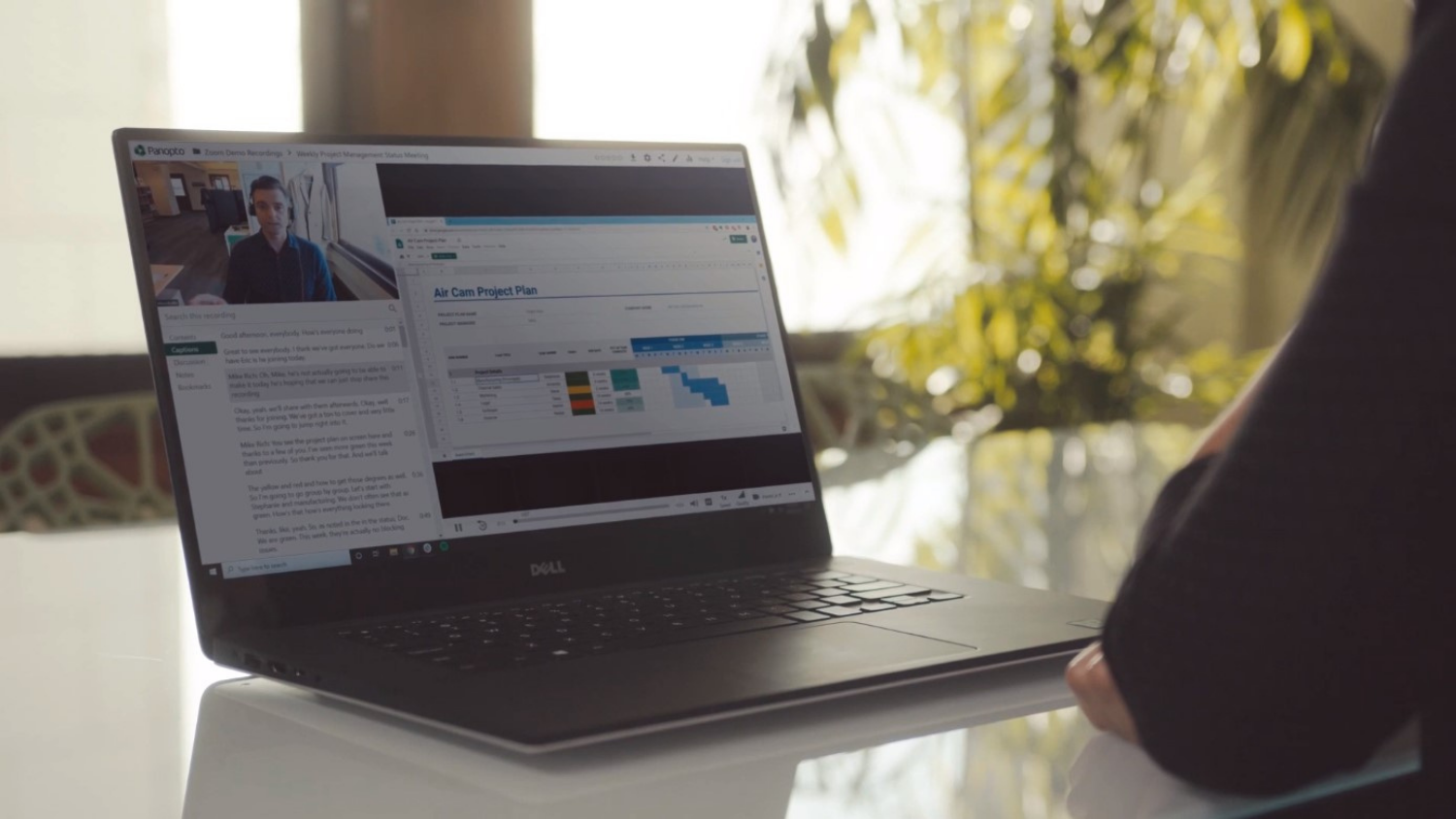Flagship Environmental Class Provides Students with Direction

In 2012, the Canadian rapper Drake returned to his high school to not only deliver the commencement address, but to graduate at age 26 after dropping out when he was 15-years-old. “Sometimes it’s the journey that teaches you a lot about your destination,” he said to his fellow graduates. Drake’s sentiment captures the intended goal of this class for first-year college students.
Director of Environmental First Year Program Megan Lupek recognized the need to provide a warm welcome to new students while helping them to conceptualize the many different career paths available to them. She was awarded a DELTA Critical Path Course Redesign Grant and used it to reimagine the approach of the ENV 101: Exploring the Environment course.
“Since we are planning on growing the program and getting more programs involved, I was concerned about the scalability of ENV 101. I wanted to make sure there is a wide variety of environmental topics explored during the class, while also reducing the workload of the faculty case leaders involved in the course,” Lupek said.
ENV 101 is expanding to include additional majors across multiple colleges which will foster even more enrollment growth. Also, ENV 101 will now be offered in the spring semester to the Spring Connect Students in addition to the traditional fall offerings.
Critical Path grants are ideal for large undergraduate classes which are in need of a redesign including interactive digital materials and activities. They are longer than most DELTA Grants, lasting two years. In the second year of the grant, the team will collect data on students’ experiences with the redesign as well as its impacts on their self-efficacy and interest in Environmental Science.
Lupek’s DELTA Grant
Lupek has a unique process for addressing her course content. Her College of Natural Resources’ flagship class showcases volunteers from NC State and the greater community who act as case study leaders to help students explore career paths which could stem from their major.
In the past, much time was spent by these leaders in the introduction portion of the allotted class time with students. She sought to make this phase more efficient so the case study leaders’ class involvement would be more impactful.
This class is taught in-person and Lupek turned to DELTA for a solution to reduce the case study leaders’ time introducing themselves and to give students time to reflect on and develop questions about their work. If this could be accomplished, case study leaders could spend their valuable time engaging with students in a meaningful way.
Lupek had a few more goals in mind for this project. She sought to:
- Reduce the repetitive work for the case study leaders
- Increase the breadth of expertise contained in the case studies
- Establish a plan to add future content
- Ensure course alignment
- Create a career exploration assignment using the new case study leader videos
“I would absolutely recommend pursuing a Critical Path Grant to any colleague who would like to make major improvements to their course. Having the support of a team from DELTA as well as funds specifically designated to help you reach your goals for the course sets you up for success,” added Lupek.
DELTA Solutions
Introductory videos were created for nine of the case study leaders to show students a glimpse of their current job and the path that led them there while highlighting their personal journeys. These videos save time, can be used in other courses and are in an engaging format drawing students into the case study leaders’ worlds in a dramatic fashion. The goal was to spark student imagination and ignite their passions in pursuing their own personal goals.
“The DELTA team has been wonderful to work with. I have appreciated their support, ideas and encouragement as well as the project management which kept us on task,” said Lupek. “I did not come in with the idea that we would create videos. That is something that came out of my discussions with my DELTA team.”
In addition, a Q&A style article was written for Former Associate Professor Louie Rivers III, Ph.D., who recently joined the Environmental Protection Agency (EPA) as a senior social science advisor.
The DELTA team working on this project was composed of Senior Instructional Designer Rebecca Sanchez, Instructional Media Producer Arthur Earnest, Team Lead of Multimedia Development David Tredwell, Broadcast and Emerging Media Specialist Relly Moorer and Assistant Director of DELTA Planning and Assessment Chris Willis.
Earnest asked thoughtful questions of the case study leaders such as “What were you like as a kid?” and “Why is your work important to you and how does it affect our collective future?” The resulting videos show the connection between personal interests and choice of major and detail the path taken to reach the career goals of the case study leaders.
More importantly, these videos demonstrate how common it is for successful people to experience a journey rather than a simple plan or path. Many show the unforeseen twists and turns they lived through including pivotal moments. Upon completion of the course, the goal for students is to keep an open mind to consider fields of study they were just exposed to throughout the semester.
“The videos turned out fantastic! I love the way they highlight the road that has led each case leader to where they are now. I think they will also allow students to get to know the case leaders on a more personal level,” said Lupek. “I’m excited for my students to see the videos this semester. I think they will be great lead-ins to each case study and a way for students to meet the case leaders before they enter the classroom.“
Interested in Learning About the Case Study Leaders Featured in Fall of 2022?
Here is an overview of the nine individuals who volunteered to help students this fall. The link to their respective introductory video is included below.
- Senior Lecturer/ Director of Environmental Technology and Management Angela Allen’s love for chemistry started in elementary school when she joined the science club. Her video shows how she feels about chemistry to this day and when she decided it would be the focus of her life’s work.
- Associate Professor Jennifer Richmond Bryant has a passion for environmental justice. She grew up on the Jersey Shore and witnessed firsthand the effects of pollution. Her video chronicles how she went from being a civil and environmental engineer major to deciding to pursue a master’s degree in industrial hygiene. And, that is not the end of her journey!
- Extension Associate Professor Barbara Doll focuses on working with the environment by “assisting in restoration projects.” She grew up on Knott’s Island, North Carolina, and was surrounded by water during her childhood. And, she talks about how trash always bothered her in her video.
- Professor David Genereux loves water and is in the field of Hydrology, which is “the study of the distribution and movement of water both on and below the Earth’s surface, as well as the impact of human activity on water availability and conditions.” His video shows how he decided to study hydrogeology and environmental engineering and uses it to solve important water resource problems.
- Reuben B. Robertson Professor Stephen Kelley grew up in Nebraska — where there are not many forests. His career path took some interesting turns which led him to Forest Biomaterials. If you are wondering what you do with such a career, watch his video to see him in action.
- Professor Christopher Moorman is a wildlife conservationist who was influenced by his father and a boy scout leader as a child. They helped him discover his desire to help animals, especially birds. You can learn more about his perspective on the relationship between people and animals by watching his video.
- Interim Associate Dean for Diversity and Inclusion, Professor Stacy Nelson uses geospatial analytics as a tool to solve environmental problems. His video shows how he views technology’s role in finding solutions to critical environmental issues.
- Associate Professor Kathryn Stevenson focuses on children with her environmental education work. In her video, she explains how she went from thinking she wanted to study psychology until she had the opportunity to travel to Africa. She fell in love with the wildlife and decided to go in a different direction with her college career.
If you are interested in DELTA Grants, visit our go.ncsu.edu/deltagrants for information about the grant cycle.


